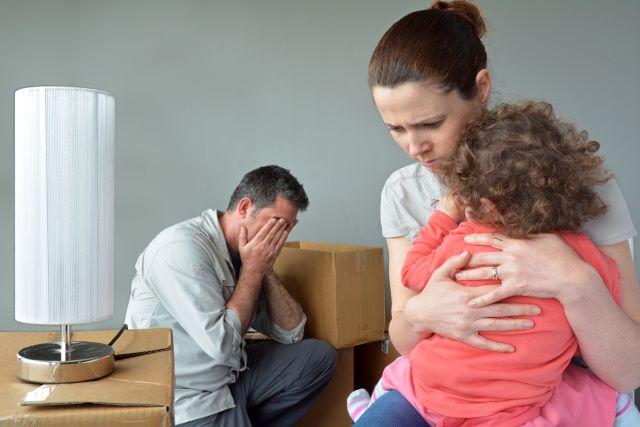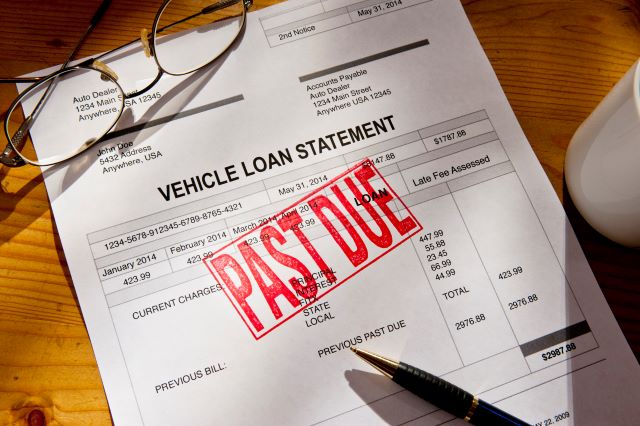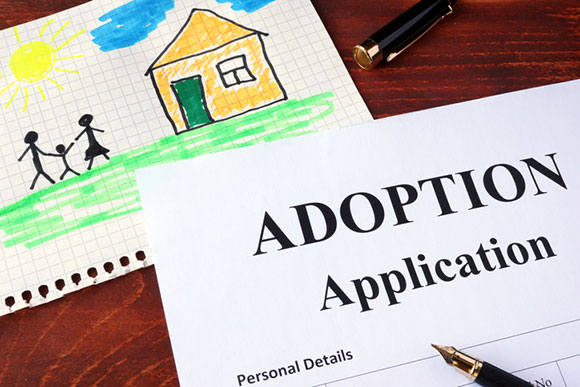Almost 800,000 people filed for bankruptcy in 2019, with the number suspected to rise drastically in 2020, due to COVID-19. Although bankruptcy is a difficult decision, it’s nothing to be ashamed of, and your life can recover afterward with proper care. Our Las Vegas bankruptcy attorneys help breakdown major purchases after filing for bankruptcy.
Bankruptcy is stressful enough, but adding the weight of purchasing a home for your family can further overwhelm you.

Yes! You can still buy a house after you’ve filed for either Chapter 7 or Chapter 13 bankruptcy.
A bankruptcy will stay on your credit report of several years after you file, and while it will make getting a loan for a home more difficult than if you had never filed, there are numerous lenders in the business who are willing to do business with you – especially if you’ve been working toward rebuilding your credit during the time period between when you filed and when you applied for your home mortgage.
Try to keep your debts as low as possible, pay your bills on time, and build up a new, good track record. Since you will not be able to apply for a home loan immediately after your bankruptcy, you will have some time to build up that good record! Typically, there are different waiting periods before you can apply for the various kinds of home loans:
You are considered a greater risk to lenders if you have a bankruptcy on your record. However, there are some ways to get the best interest rate available for you, such as getting an FHA loan. If you can qualify for this type of loan, your chance of getting a good rate is higher. To note: borrowers of FHA loans must pay for mortgage insurance for at least eleven years.
Another option is to consider a rent-to-own agreement. With this sort of agreement, you rent the home you are interested in purchasing for a certain amount of years, typically three to five, and during that time your rent payment will be one or $200 more than if you were simply renting. The extra money gets put aside toward a down-payment at the end of the three-five year term. To note: if you decide to not purchase the house at the end of the term, you may lose the money that you had been paying extra toward the down payment.
Well, buy with the higher rate and re-finance later!
The bottom line remains: all is not lost after bankruptcy. You can still work hard buy your dream home.

Buying a car is a great way to start re-building your credit after filing a bankruptcy. But where to start? Who will give you a loan? Do not worry, there are options.
Some experts suggest that your attitude at the dealership is likely (or not) to score you a great deal. Remember: your bankruptcy doesn’t define you as a human being, so don’t cower in shame and accept horrible terms just because you’re feeling low. Walk onto the sales lot with courage and confidence, and don’t let anyone take those feelings away from you.
One option to get a good rate is to enlist a co-signer – someone willing to sign on the loan with you, in order to help re-build your credit and get you the best rate possible.
Also remember: the price of the car matters! Don’t get suckered into telling the car salesperson how much you want to pay per month, as they will just stretch out the length of your loan! Focus more on the actual price of the car, and deal with the monthly terms later.
Are you buying a new or used car? Make sure you’re not buying “too much car” or letting your ego get the best of you in thinking you need a certain make and model. This is advice for everyone, not just those coming out of bankruptcy!
Steer clear of predatory dealers who offer subprime loans. These dealers charge very high-interest rates and may put you in a financial position that leads you to another bankruptcy. Don’t believe them if they say they are your only option.
You may also wish to get pre-approved before car shopping. Go to your bank or credit union and get preapproval for a car loan; knowing the interest rates upfront may make the buying experience easier.
If you have the ability to make a down payment on the car, do so. This will lower your monthly payments and interest paid.
Bottom line: do your research, be prepared, and don’t overspend!

Couples often wonder how adoption is affected after bankruptcy, as if adoption isn’t hard enough already! Have no fear, your dream of adopting a child doesn’t need to be shattered because you filed for Chapter 7 or Chapter 13.
Taken by themselves, past financial hardships don’t disqualify you from adopting a child. To note: both federal and state laws govern adoption rules, and agencies may also have their own criteria, so you will need to check locally with your state government or prospective agency to get the details about the qualifications.
Most adoptions begin with a home study during which someone from the adoption agency visits your home and asks you questions about your life, home, job, etc. This interview process is exceptionally important in qualifying you to be a parent to a new child. There will also be a background check conducted at some point, to see if you have crimes on your record.
Some agencies may also check your public records, which will include your filing for bankruptcy. At that point, the social worker may have questions for you; it’s best you are prepared with documentation of your new financial stability, as well as an explanation for the past. This is your chance to document the circumstances that led to your initial filing.
More than anything: be honest. The worst thing you can do is lie or try to hide something that’s going to come to the surface eventually. The relationship you build with the state or agency social worker is key to the success in your adoption process, so don’t break that trust.
Bottom line: adoptions ARE possible after bankruptcy.